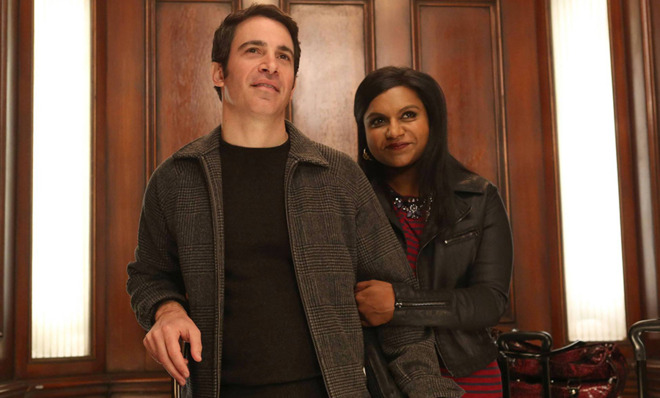Ignore the naysayers: The future of sitcoms has never been brighter
Yes, networks are struggling. But if you're a fan of thought-provoking sitcoms, you've got a lot of great options.


A free daily email with the biggest news stories of the day – and the best features from TheWeek.com
You are now subscribed
Your newsletter sign-up was successful
In a recent article, Vulture's Joe Adalian describes what he has proclaimed the "Great Sitcom Recession." With the exception of the occasional Big Bang Theory–sized hit, networks are struggling to maintain successful comedy lineups, and sitcoms are being canceled left and right, including freshmen entries like Manhattan Love Story, A to Z, and Selfie. But those examples disguise a greater truth: there's never been a better time to be a sitcom fan.
Adalian offers four ideas for how networks can improve their sitcom schedules. And while he raises good points, he ignores the breadth of high-quality comedic work that's already being produced today and the new ways that work can be showcased.
To be sure, there are problems with the network system. For one thing, it's long past time networks stopped putting so much emphasis on timeslots and lead-ins. The coveted 18-to-49 demographic is increasingly watching television online or through DVRs, and that number will only rise as time goes on. When viewed through those metrics, a show's quality — and the number of loyal viewers it can attract — becomes the most important consideration.
The Week
Escape your echo chamber. Get the facts behind the news, plus analysis from multiple perspectives.

Sign up for The Week's Free Newsletters
From our morning news briefing to a weekly Good News Newsletter, get the best of The Week delivered directly to your inbox.
From our morning news briefing to a weekly Good News Newsletter, get the best of The Week delivered directly to your inbox.
Focusing on lead-ins also takes away from the ability to judge shows on their individual merits. The two new sitcoms that ABC canceled, Selfie and Manhattan Love Story, shared the Tuesday time slot, airing back-to-back from 8 p.m. to 9 p.m. even though they don't have much in common. The former was a witty, modern take on My Fair Lady, while the latter trafficked in unfortunate gender stereotypes that belong in the 1960s. The same is often true for New Girl and The Mindy Project: The pair air back-to-back on Fox on Tuesdays, but Mindy is succeeding among women aged 18 to 34, while New Girl is struggling for viewers.
Instead of worrying about which lead-ins will save shows from the sitcom graveyard — as Adalian notes, even a Big Bang Theory lead-in couldn't save CBS's The Millers — networks should focus on creating shows that will build devoted fan bases.
Take, for example, Community's stubborn refusal to die. Despite its dismal numbers, Community has slogged on for a full five seasons, with a sixth on the way, courtesy of Yahoo. The sitcom's viewership is nowhere close to that of Modern Family, but its fan base has been rabid enough to continually save the show from multiple threats of cancelation. These are the types of engaged, passionate viewers networks should be courting, because they're the ones who will always return.
Streaming services like Netflix and Amazon Prime have given sitcoms a shelf life that wasn't possible for TV shows in the past. Syndication is now less important than streaming, and shows have more vehicles to build devoted fan bases. Instead of writing generic episodes or resetting the plot every week — casual viewers can tune into Modern Family and The Big Bang Theory without worrying about being lost — sitcoms that can count on loyal audiences have the opportunity for developing plots that are as groundbreaking as anything you'd see in a prestige drama.
A free daily email with the biggest news stories of the day – and the best features from TheWeek.com
And 2014 has seen no shortage of sitcoms breaking new ground. Earlier this year, The Mindy Project presented broadcast TV's first discussion of anal sex on a sitcom. The episode, "I Slipped," was praised by critics and proved that the form continues to grow and evolve within our culture. This year has seen plenty of other noteworthy sitcoms that have attracted critical acclaim and loyal viewers, including HBO's Silicon Valley and Fox's Brooklyn Nine-Nine.
The rise of streaming video also means that networks need to think in the long term. Less popular shows that are critically acclaimed will live on through streaming and have the potential to develop new devotees (and revenue streams) for years to come. While that's admittedly not great for network ratings, it's great for sitcom viewers. When NBC passed on an upcoming Tina Fey-Ellie Kemper sitcom, Netflix picked it up for two full seasons — and that model will allow it to develop the engaged, loyal viewership that networks should be courting.
In the age of streaming, high-quality television is, in many ways, more important than viewer numbers. And that's already being reflected in the shows themselves, making a "recession" unlikely. There's still plenty of promise for the sitcom's future.
Meghan DeMaria is a staff writer at TheWeek.com. She has previously worked for USA Today and Marie Claire.
-
 The ‘ravenous’ demand for Cornish minerals
The ‘ravenous’ demand for Cornish mineralsUnder the Radar Growing need for critical minerals to power tech has intensified ‘appetite’ for lithium, which could be a ‘huge boon’ for local economy
-
 Why are election experts taking Trump’s midterm threats seriously?
Why are election experts taking Trump’s midterm threats seriously?IN THE SPOTLIGHT As the president muses about polling place deployments and a centralized electoral system aimed at one-party control, lawmakers are taking this administration at its word
-
 ‘Restaurateurs have become millionaires’
‘Restaurateurs have become millionaires’Instant Opinion Opinion, comment and editorials of the day
